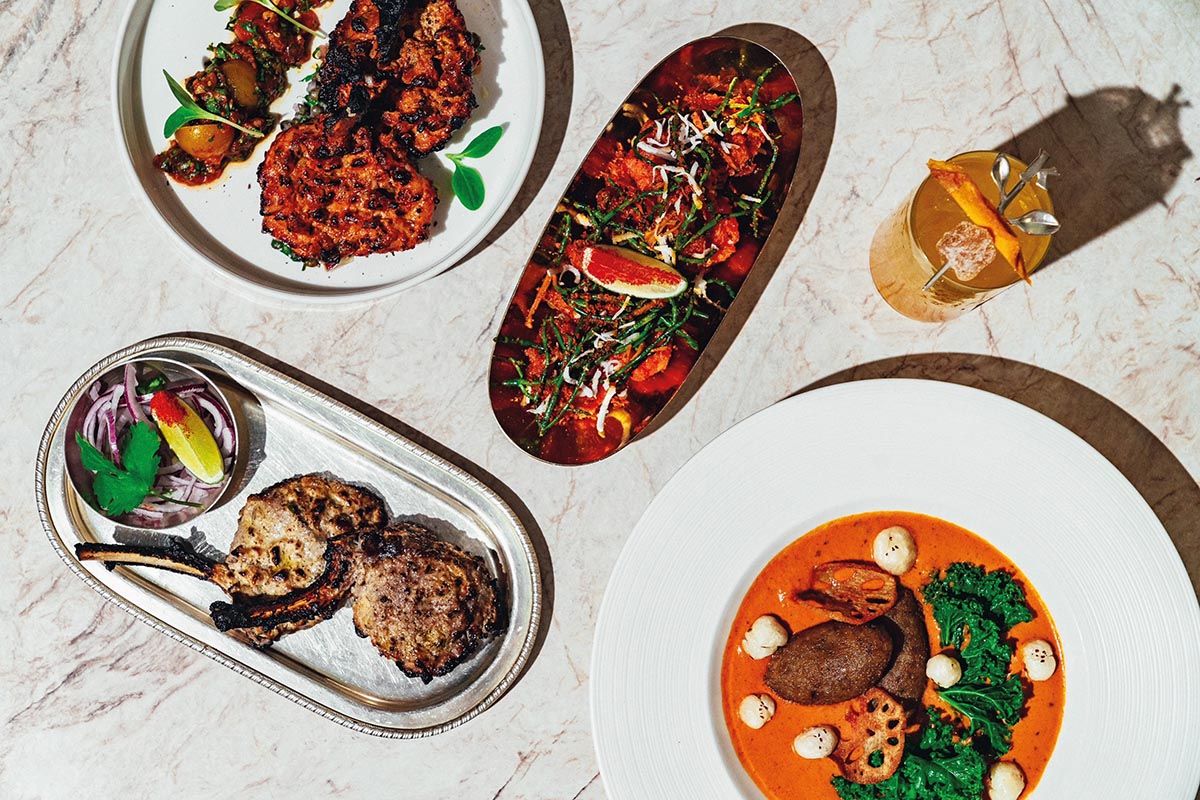
Happily Ever After
Being a newlywed is filled with blissful moments but adjusting to married life has its fair share of challenges too. Here’s how you can ensure that both of you are equipped to deal with the changes ahead
Love stories in movies, books and songs all have one thing in common; they only tell you one side of the story. Marriage is amazing but it’s also hard. Many of the obstacles and hurdles you’ll face, particularly in the early days are to do with navigating the relationship you have with your partner, dealing with the needs of another person and getting to know them and yourself in a new way. Dr Sohaib Imtiaz who is a certified Lifestyle Doctor and Founder of the Ameli App, a matchmaking app that uses behavioural psychology to help you find your perfect partner, is a newly-wed himself so is aware of the challenges and believes they can be overcome: “All change is hard, even the most exciting changes like moving in with your life partner present problems that you never could have predicted. There is a link between relationships and mental health, especially in terms of how someone treats you and makes you feel, but while this may seem like a cause for concern, these issues can be addressed.”

Dr Sohaib Imtiaz is a doctor certified in lifestyle medicine; Founder of the Ameli App and Human Behaviour Club on Clubhouse
Adjusting to living with a partner
There are physical and emotional adjustments that need to be made when you move in with someone and this can have an effect on your emotional wellbeing and mental health. That’s why it’s so important to prioritise communication from the beginning. Dr Sohaib explains: “We call this love languages; how you speak to and communicate with your partner. If you experience differences rather than start an argument, break the problem down into chunks. Take a moment to air your expectations of the situation. Being open and honest will help ease the issue, find a compromise and strengthen your bond.”
Often these issues don’t arise until the honeymoon period wares off but you are not alone in this, it’s completely natural. Dr Sohaib explains: “In the first six months you’ll experience a lot of dopamine and because you’ll be feeling so happy you may overlook what later becomes a red flag. Things that didn’t annoy you when you were courting may suddenly become difficult to deal with. Again communication is important but it’s recommended that you speak to an expert outside of the marriage.”
Most people assume relationship counsellors are for couples but they are equally as beneficial if you attend sessions on your own. Having a relationship counsellor will help you talk about your feelings without being judged, this is something that isn’t possible with friends and family. You’ll also be in a better place to speak with your partner, which should be weekly. Dr Sohaib advises: “Have weekly check-ins with your partner where you can both say how you’re feeling about things. Doing it at the weekends when you may have a bit more time is great as it clears the air before the new week so that you don’t carry over any stresses which can manifest in your mental health going down.”
Coping with loneliness
Leaving your home behind which may be buzzing with the sounds of siblings and swapping it for a space with just two people can feel very quiet and at times when your partner is away or out, feelings of loneliness can set in which can trigger your mental health. “Loneliness is dangerous”, says Dr Sohaib. “The pandemic showed us just how serious it is and the effect it can have on our mental health. The best way to combat it is to stay in contact with friends and family. Apps like Facetime make this so easy to do. But also seek new friendships. Online is a great place to meet people, the Bumble app has a feature for making new friends and it would be fun to meet up and do an activity that you have a shared interest in. You don’t need to feel alone, there is always someone to talk to. Talking to a therapist or counsellor can help.”


Dr Saliha Afridi, is a Psychologist, Entrepreneur and Founder of the Lighthouse Arabia Dubai
Moving in with in-laws
For some couples, not only are they adjusting to living with each other, they may have to deal with the whole new dynamic of living with in-laws and this has its own set of concerns. There are many things to consider before moving in with your in-laws. The most important will be to sit with your spouse and come up with a plan and list out the expectations both parties have of each other as well as the responsibilities. Psychologist Dr Saliha Afridi explains: “Questions that will need discussion will include things like how much time and when are you expected to be together? What is ‘the couples space’ versus shared space? Who will speak to the in-laws if there is a disagreement? What are your non-negotiable boundaries? What are you willing to compromise?”
She adds: “Remember that most people already have preconceived ideas about how ‘mother-in-laws’ are and they are mostly about how contentious that relationship can be and how mother-in-laws don’t respect boundaries and so when a disagreement happens it is typically seen with that lens and taken as a sign of something much more than just a disagreement.”
This is something to think about before you react in the wrong way.
Dr Saliha says preparation can help. She advises: “Before the move, write out what your preconceived fears are and know what the triggers could be. It will also be important to come up with a list of things to remember when things get heated, as they do in any relationship where people live together. That list can include many things such as how you will make considerations, how to not take things personally, how to find your centre again and move towards compromise and harmony.”

If you need relationship or mental health advice always speak to a professional. Here are some organisations that can help you. You can also speak to your GP.
• Relate (relationship counselling services), www.relate.org.uk
• Mind (mental health charity, www.mind.org.uk
• NHS (lists local counselling services), www.nhs.uk






Get Social